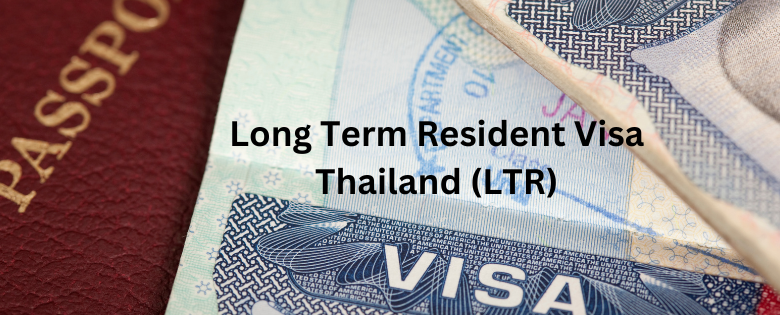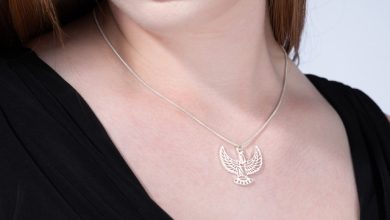
Long-Term Visa Thailand: Everything You Need to Know
Thailand, renowned for its vibrant culture, stunning beaches, and affordable living, has become a popular destination for expatriates, digital nomads, retirees, and long-term travelers. If you’re planning to stay in Thailand for an extended period, you may need to apply for a long term visa Thailand. Thailand offers various visa options tailored for people who wish to stay in the country for several months or even years. This article will guide you through the different types of long-term visas available, their benefits, eligibility criteria, and the application process.
Types of Long-Term Visas for Thailand
There are several types of long-term visas available for foreign nationals who wish to stay in Thailand for extended periods. These visas cater to different purposes, including tourism, work, retirement, family reunification, and investment. Below are the most common types of long-term visas offered by the Thai government:
1. Tourist Visa Extension
The Tourist Visa is typically issued for short stays of up to 60 days. However, travelers can extend their stay by applying for a tourist visa extension. Extensions are generally granted for an additional 30 days, giving travelers up to 90 days in Thailand.
Though the tourist visa extension is not truly a long-term visa, it is an option for those who wish to stay longer while they explore other visa options. If you’re applying for a tourist visa extension, ensure that you apply before your initial visa expires.
Key Features:
- Duration: 60 days, with a 30-day extension possible.
- Purpose: Tourism or short-term visits.
- Eligibility: Available to individuals who entered Thailand on a tourist visa or under the visa exemption rule.
- Application Process: Apply at the Thai Immigration Office before your visa expires.
2. Non-Immigrant Visa (Type O, B, ED, etc.)
The Non-Immigrant Visa category is one of the most common long-term visas for foreigners staying in Thailand. There are several types of non-immigrant visas, each designed for specific purposes, including work, education, and family reunification.
- Non-Immigrant Visa Type O: This is commonly used for visiting family members, retiring, or seeking medical treatment in Thailand.
- Non-Immigrant Visa Type B: Issued to individuals who wish to work or conduct business in Thailand.
- Non-Immigrant Visa Type ED: For students who want to study in Thailand.
These visas are typically valid for 90 days, after which they can be extended for up to 1 year. Extensions are granted based on the specific visa type and purpose.
Key Features:
- Duration: 90 days, with the possibility of extension to 1 year.
- Purpose: Work, education, family, medical treatment.
- Eligibility: Varies depending on visa type; generally requires proof of employment, family ties, or financial stability.
- Application Process: Submit your application to the nearest Thai embassy or consulate. Extensions can be requested at the Immigration Office within Thailand.
3. Retirement Visa (O-A)
The Retirement Visa, also known as the O-A Visa, is designed for individuals aged 50 and above who wish to retire in Thailand. This visa allows retirees to live in Thailand long-term without the need to exit the country regularly.
To qualify for the retirement visa, applicants must demonstrate sufficient financial resources, either through a bank deposit or a regular income. As of now, the requirement is a bank deposit of 800,000 THB in a Thai bank account or a monthly income of 65,000 THB.
The retirement visa is valid for 1 year and can be extended annually. This is one of the most straightforward long-term visa options for people who wish to enjoy their retirement in Thailand.
Key Features:
- Duration: 1 year, with annual extensions possible.
- Purpose: Retirement.
- Eligibility: Applicants must be 50 years or older, with sufficient financial resources.
- Application Process: Submit financial documents and medical certificates to the Thai embassy or consulate for the initial application.
4. Elite Visa (Thailand Privilege Card)
The Thailand Privilege Card, also known as the Elite Visa, is a unique long-term visa program designed for affluent individuals who wish to enjoy an exclusive lifestyle in Thailand. This visa offers various packages, including multi-entry options, VIP services, and access to luxury privileges.
The Elite Visa provides long-term stay options ranging from 5 to 20 years, depending on the chosen package. Applicants can enjoy benefits such as expedited immigration procedures, airport transfers, luxury hotel discounts, and access to exclusive events.
The Elite Visa is an attractive option for those looking for a hassle-free, luxurious stay in Thailand. While the program requires a significant financial commitment (with fees ranging from 500,000 THB to 2 million THB), it provides unparalleled convenience and exclusivity.
Key Features:
- Duration: 5 to 20 years, depending on the package.
- Purpose: Long-term residency for affluent individuals.
- Eligibility: High-net-worth individuals who can afford the program fees.
- Application Process: Submit an application directly through the Thailand Privilege Card Office.
5. Business Visa (Non-Immigrant B)
The Non-Immigrant B Visa is ideal for individuals who wish to work or start a business in Thailand. This visa is available to foreign nationals who have secured employment with a Thai company or intend to invest in the Thai economy.
A business visa is typically valid for 90 days and can be extended for 1 year if the holder continues to meet the requirements. Additionally, the work permit issued in conjunction with the visa allows the holder to legally work in Thailand.
Key Features:
- Duration: 90 days, with the possibility of extension to 1 year.
- Purpose: Work, business, investment.
- Eligibility: Requires proof of employment, business venture, or investment.
- Application Process: Submit documents to the Thai embassy or consulate and apply for a work permit in Thailand.
6. Marriage Visa (Non-Immigrant O)
The Marriage Visa, also known as the Non-Immigrant O Visa, is for individuals who are married to a Thai citizen and wish to live together in Thailand. This visa is available to both men and women and can be renewed annually.
Applicants must demonstrate that they meet financial requirements similar to the Retirement Visa (800,000 THB in a Thai bank account or a monthly income of 40,000 THB) and provide a marriage certificate.
Key Features:
- Duration: 1 year, renewable annually.
- Purpose: Marriage to a Thai citizen.
- Eligibility: Must be married to a Thai national.
- Application Process: Submit a marriage certificate and financial documents to the Thai embassy or consulate.
Benefits of a Long-Term Visa for Thailand
There are several advantages to obtaining a long-term visa for Thailand. Some of the key benefits include:
- Stability: A long-term visa allows you to live in Thailand without having to leave the country frequently for visa runs.
- Financial Planning: Long-term visas such as the retirement visa and marriage visa provide financial stability, as applicants must show proof of sufficient income or savings.
- Work Opportunities: With work and business visas, you can legally engage in employment or business activities in Thailand.
- Peace of Mind: A long-term visa eliminates the uncertainty and stress of applying for short-term visas and extensions.
Conclusion
Thailand’s long-term visa options provide a variety of benefits for those looking to stay in the country for extended periods. Whether you’re retiring in Thailand, seeking a work opportunity, studying, or living with a Thai spouse, there is a visa designed to suit your needs. It’s essential to thoroughly research the requirements for each visa type and ensure that you meet the eligibility criteria before applying.
By choosing the right long-term visa for your situation, you can enjoy the beauty and culture of Thailand without worrying about frequent visa renewals. Whether you’re looking for a retirement paradise, a place to grow your business, or a country to call home, Thailand offers the perfect environment for long-term living.









